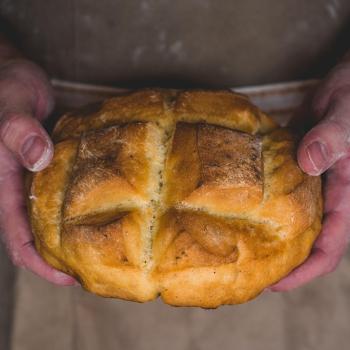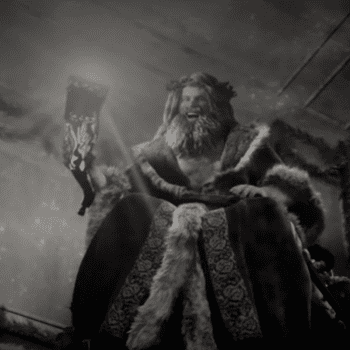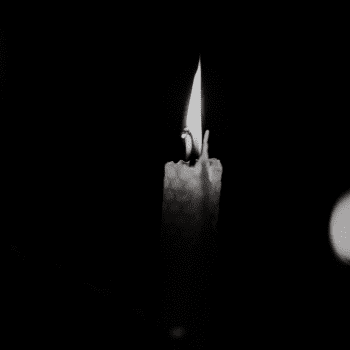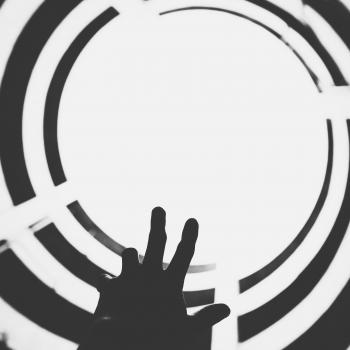The following is a guest post by A.J. Swoboda, a pastor, professor, and author from Portland, OR. His new book, The Dusty Ones, is on sale now.
There’s that old story of the German philosopher Arthur Schopenhauer. One day, Mr. Schopenhauer walked down the street only to bump into, head on, another pedestrian who walked casually without paying attention to where they were going.
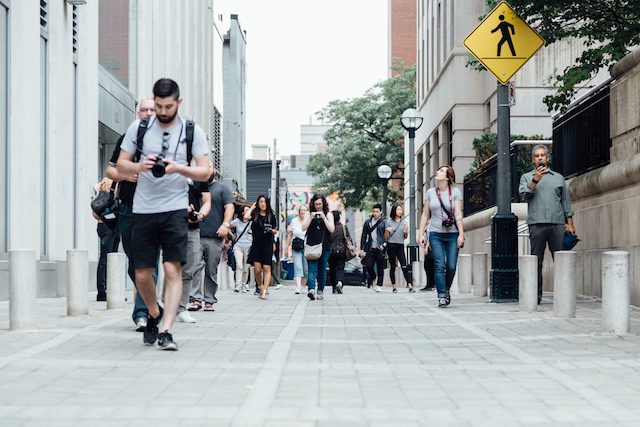
Totally involved in his own self-involvement, the pedestrian asked Schopenhauer, “Who do you think you are?” The question was responded to quite perfectly with kindness to the stranger: “Who am I? If only I actually knew.”
Often, we are awakened to ask the most important, pressing, timely questions when our own lives—our own Schopenhauerian “self-involvements”—are interrupted.
So much of my life takes place in coffee shops these days—writing, meetings, texting, responding, emailing. And screens mediate a great deal of it. I feel like I live from screen to screen. Computer. Phone. Movie. TV. Computer. Back to the phone. I live, it seems, from screen to screen. And what are these screens other than being present elsewhere than where I in body am.
A life of screens is a life of disembodiment.
I’m less and less actually speaking to, working with, serving, people and things that are physically present to me. Which means I am in a different world than my body actually is.
Recently, I walked down the street with my head curled toward my phone answering a text and I neatly and flawlessly managed to walk into the middle of the street. No one hit me. But I could have been hit. I looked up and realized I wasn’t paying attention whatsoever to what was going on, where I was, where I was walking. And I was interrupted to attention like awaking from a dream.
Who am I?
If only I actually knew.
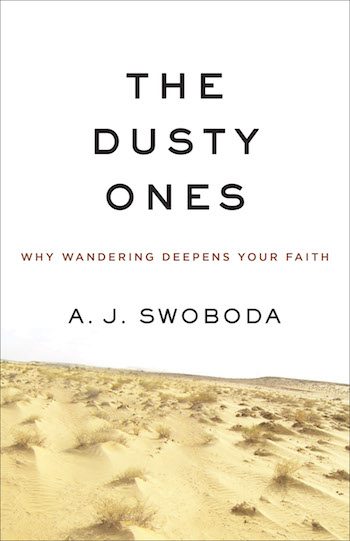 Sometimes we need to be woken up, interrupted, moved toward the deeper questions. Therein lies the holiness of an interruption. Long ago, John Wesley spoke with great clarity about this idea he called “prevenient grace.” By it, he meant that it was God’s grace, which interrupted us to want grace. It was a grace that interrupted us, that moved us, that drew us. None of us, Wesley believed, just came to grace out of the blue. Rather, he argued, God awoke us to be drawn to grace. It is an act of grace that made us available to the reality of grace.
Sometimes we need to be woken up, interrupted, moved toward the deeper questions. Therein lies the holiness of an interruption. Long ago, John Wesley spoke with great clarity about this idea he called “prevenient grace.” By it, he meant that it was God’s grace, which interrupted us to want grace. It was a grace that interrupted us, that moved us, that drew us. None of us, Wesley believed, just came to grace out of the blue. Rather, he argued, God awoke us to be drawn to grace. It is an act of grace that made us available to the reality of grace.
I think an interruption, a bumping into a bystander, a walking into the street, is God’s way of leading us to grace. Interruptions, one could say, are a kind of prevenient grace.
Henri Nouwen, in his book Reaching Out, puts it marvelously:
My whole life I have been complaining that my work was constantly interrupted, until I discovered that interruptions were my work.
Jesus interrupted constantly. He called people from their tax collector booths. He interrupted funerals. He interrupted conversations. He interrupted plans. In my recent book The Dusty Ones—a book that examines the importance and even holiness of all the wandering experiences in the Bible—I talk about being Spirit-baptized and what that means for our lives. It means, in sum, that when we are filled with God’s power and Spirit, nowhere is Godless territory. God is with us everywhere we go.
But when we see our plans as the plans of God, we fail to recognize God’s Spirit who transcends our plans.
What’s the point?
Our screens are ruining our ability to get lost in the sacred joys of interruptions. We are everywhere but where we are. What if we chose to see those little interruptions—of people, of late appointments, of the far-to-long conversation—as prevenient grace awakening us to the realities of the graces of the Triune God?
Then we probably might actually start knowing—as Shopenhauer so wished he could—who we really are.
 Dr. A.J. Swoboda is a pastor, writer, and professor in Portland, Oregon. He is @mrajswoboda on Twitter and is the author of The Dusty Ones: How Wandering Deepens Your Faith (Baker).
Dr. A.J. Swoboda is a pastor, writer, and professor in Portland, Oregon. He is @mrajswoboda on Twitter and is the author of The Dusty Ones: How Wandering Deepens Your Faith (Baker).



